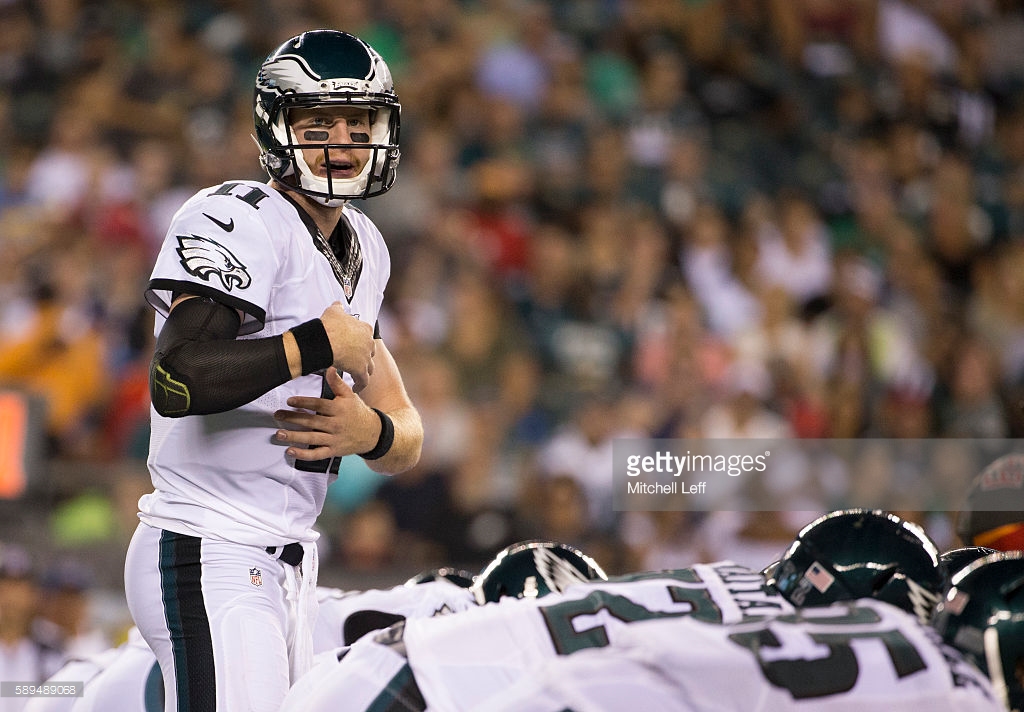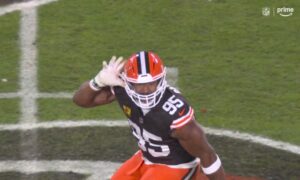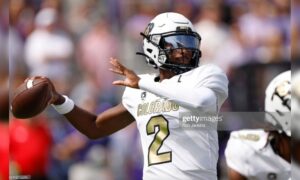The most significant decision that currently stands to define the Cleveland Browns’ present regime was the choice to trade out of the second-overall draft spot in 2016, passing up the chance to draft Carson Wentz. The Eagles went 7-9 in 2016 while Cleveland nearly went without a win.
The ultimate ‘winner’ of the trade, however, is far from determined, and we will have to evaluate what the Browns gained from that trade—and the subsequent trades that followed.
Cleveland gave up their second-overall and a fourth-round pick last year in exchange for the Eagles’ eighth-overall pick, third- and fourth-rounders in that draft, this past year’s first-round pick, and next year’s second-round pick.
They then traded their 2016 first-round pick with the Titans, going back to 15th overall, scooping up a third-round pick last year and a second-round pick this year. More and more trades make it all the more complicated, so it would probably be easier to sum up what they have gained and have still to gain.
For moving out of the second-overall spot in 2016, passing up Wentz, the Browns have so far accumulated wide receiver Corey Coleman (R1 2016), tackle Shon Coleman (R3 2016), quarterback DeShone Kizer (R2 2017), quarterback Cody Kessler (R3 2016), safety Derrick Kindred (R4 2016), tackle Spencer Drango (R5 2016), wide receiver Ricardo Louis (R4 2016), wide receiver Jordan Payton (R5 2016), and safety Jabrill Peppers (R1 2017).
They still have yet to use the Eagles’ second-round pick and the Texans’ first-round pick in 2018, also accrued in some form or fashion as a result of trading out of the second slot in 2016, which they presumably would have used to draft Wentz.
There hasn’t been an incredible amount of on-field return on investment just yet, but Coleman was an instant starter and looked like a capable one when he was healthy. He will play a key role in the offense this year, likely catching passes from Kessler or Kizer, if not Brock Osweiler. Kindred started five games as a rookie and recorded 46 tackles with five passes defensed, but their tackles and the other wide receivers gained through this trade did not contribute much during their rookie seasons. One might expect that they will be more involved this year.
The Browns undoubtedly picked up a tremendous amount of real estate as a result of moving out of a prime position—to date, three first-rounders, two second-rounders, two third-rounders, two fourth-rounders, and two fifth-rounders—but their search for a franchise quarterback continues.
Even if they don’t, they still gained quite a bit, and a lot of tangible value, for making the trade. But if Wentz ultimately proves to be a franchise quarterback capable of leading a team to a championship, and they fail to find one the way the Pittsburgh Steelers struggled to get over the hump after they passed on Dan Marino in 1983, it will not have been worth it.








